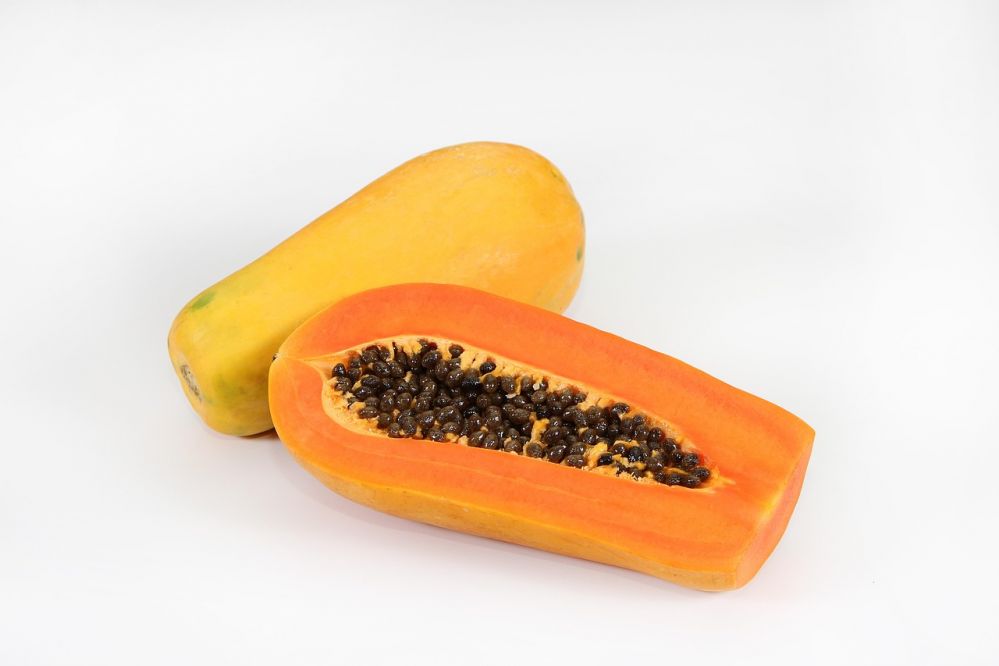Can Papaya Induce Periods? Exploring the Science and Myths

Papaya, the vibrant tropical fruit known for its sweet flavor and numerous health benefits, has long been associated with claims about influencing menstrual cycles. Across cultures, particularly in South Asia, folklore suggests that eating papaya—especially unripe or green papaya—can help induce periods or regulate irregular menstrual cycles. But is there scientific truth to these claims, or is it just a myth passed down through generations? This article dives into the evidence, traditional beliefs, and expert opinions to explore whether papaya can truly induce periods.
The Cultural Belief: Papaya and Menstruation
In many parts of India, Southeast Asia, and other tropical regions, unripe papaya is a popular home remedy for menstrual irregularities. Traditional wisdom holds that consuming green papaya, often cooked in curries or eaten raw, can stimulate uterine contractions and trigger menstruation. This belief is rooted in Ayurvedic and folk medicine, where papaya is thought to have "warming" properties that increase blood flow and promote hormonal balance.
Some anecdotal reports on platforms like Quora and parenting forums suggest that women have used papaya to induce periods during times of delay, particularly in cases of irregular cycles or suspected early pregnancy. However, these claims are largely personal experiences and lack rigorous scientific backing.
The Science: What’s in Papaya?
Papaya, both ripe and unripe, is packed with nutrients like vitamins C and A, folate, and antioxidants. Unripe papaya, in particular, contains high levels of papain, an enzyme that aids digestion and is believed to have uterine-stimulating properties. Some sources, like WebMD, note that papain may act as a muscle relaxant or stimulant in certain contexts, which could theoretically affect the uterus. Additionally, unripe papaya contains latex, a substance that some traditional remedies associate with inducing contractions.
Another component often cited is carotene, found in both ripe and unripe papaya. Some believe carotene can influence estrogen levels, potentially helping regulate menstrual cycles. However, scientific studies directly linking carotene or papain to period induction are scarce. A 2018 study published in the Journal of Ethnopharmacology explored papaya’s traditional uses but found no conclusive evidence that it directly induces menstruation in humans.
Can Papaya Induce Periods? The Evidence
While the idea that papaya can induce periods is widespread, the scientific evidence is limited and inconclusive. Here’s what we know:
- Uterine Stimulation: Unripe papaya’s papain and latex may theoretically cause mild uterine contractions, as suggested by some animal studies. For example, a study in rats noted that papaya extracts increased uterine activity, but human trials are lacking. This lack of human data means we can’t confirm papaya’s efficacy or safety for inducing periods.
- Hormonal Effects: There’s no solid evidence that papaya directly affects estrogen or progesterone levels enough to trigger menstruation. While carotene supports overall health, its role in menstrual regulation is speculative.
- Anecdotal Success: Many women report that eating unripe papaya or drinking papaya juice helped jumpstart a delayed period, possibly due to its warming effect or placebo. However, these accounts don’t account for other factors, like stress or hormonal fluctuations, that could naturally trigger a period.
Importantly, consuming large amounts of unripe papaya to induce periods can be risky. Healthline warns that excessive papain or latex intake may cause digestive upset or, in rare cases, allergic reactions. For pregnant women, unripe papaya is traditionally avoided, as some cultures believe it could induce miscarriage, though evidence is limited and mostly anecdotal.
Other Natural Methods for Menstrual Regulation
If you’re looking to regulate or induce a period, papaya may not be the most reliable option. Experts, including those cited on Medical News Today, suggest safer alternatives backed by more evidence:
- Ginger: Known for its anti-inflammatory properties, ginger tea may promote blood flow and help with menstrual delays, though studies are limited.
- Vitamin C: High doses of vitamin C (found in papaya but also in citrus fruits) may increase estrogen levels, potentially inducing periods, but excessive intake can cause side effects.
- Exercise and Stress Management: Moderate exercise and stress reduction through yoga or meditation can help regulate cycles by balancing hormones.
- Medical Consultation: For persistent irregular periods, consult a gynecologist. Conditions like polycystic ovary syndrome (PCOS) or thyroid issues may require medical intervention, as noted by the Mayo Clinic.
Precautions and Risks
Before trying papaya to induce a period, consider the following:
- Moderation is Key: Eating small amounts of papaya as part of a balanced diet is generally safe, but overconsuming unripe papaya may lead to stomach cramps or irritation due to its high papain content.
- Pregnancy Concerns: If you suspect pregnancy, avoid unripe papaya and consult a doctor, as inducing periods could pose risks.
- Underlying Conditions: Irregular periods may signal health issues like PCOS or stress. Relying on home remedies without addressing the root cause could delay proper treatment.
It’s always best to consult a healthcare provider before using any food or supplement to influence your menstrual cycle. A doctor can provide personalized advice and, if necessary, prescribe medications like progesterone to safely induce a period.
Final Thoughts
The idea that papaya can induce periods is a blend of cultural wisdom and anecdotal reports, but scientific evidence is thin. While unripe papaya’s papain and latex might theoretically stimulate uterine activity, there’s no conclusive proof that it reliably triggers menstruation in humans. For those with irregular cycles, safer and more effective options include lifestyle changes or medical consultation. Papaya remains a nutritious fruit that can support overall health, but it’s not a magic bullet for menstrual woes.
Disclaimer: This article is for informational purposes only and not a substitute for medical advice. Always consult a doctor before trying remedies to induce or regulate periods.